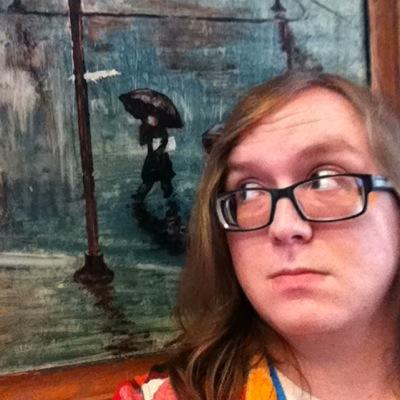
Hi! I'm Drew, but you've probably guessed that from the URL. I'm a game developer and researcher focused on visualizing and analyzing player interactions and creations, and using those insights to make targeted improvements, resulting in better, smarter games. I am fascinated by user-generated content in any form, from in-game artifacts, levels and puzzles, to peripheral content created for communities or social networks. I'm also interested in using player interactions within game environments and communities to develop models of player knowledge and proficiency. These models help adapt games to suit different players, and to guide them as they discover new strategies.
Long story short, I'm interested in using data to build games that learn with their players.
As a Ph.D Candidate/Research Assistant. I developed educational puzzle games in Unity3D to encourage creation and sharing of high-quality puzzles between players/learners. I developed multiple Level Editors with different incentives ranging from traditional gamification (points, leaderboards) to creative constraints.
The Center is home to three research groups: Dr. James Lester's Intellimedia group, Dr. Tiffany Barnes' Games+Learning Lab, and Dr. Kristy Boyer's LearnDialogue Group. All three groups are focused on improving the design and effectiveness of computer-supported or games-based learning tools.
Prior to starting my Ph.D. at NCSU, I worked with Dr. Tiffany Barnes developing educational/serious games which used AI to adapt to the students playing them. These projects included SNAG'EM, a social scavenger hunt game/networking tool, and BOTS, a programming puzzle game for novice computer users.
Graduated Magna Cum Laude with a Minor in Mathematics and certificates in Theatre and Philosophy
Highlights:
Submitted and Granted Patents
Brendan Bull, Andrew Hicks, Scott Robert Carrier, Dwi Sianto Mansjur. “Use of machine learning to characterize reference relationship applied over a citation graph.” Patent No. 11144579 (Filed 2019, Granted 2022)
Dwi Sianto Mansjur, Scott Robert Carrier, Brendan Bull, Andrew Hicks. “Generating a domain-specific phrasal dictionary.” Patent No. 11328007 (Filed 2019, Granted 2021)
Brendan Bull, Paul Lewis Felt, Andrew Hicks. “Identification of co-located artifacts in cognitively analyzed corpora.” Patent No. 10971273 (Filed 2018, Granted 2021)
Peer-Reviewed Conference Publications
Michael Eagle, Drew Hicks, and Tiffany Barnes. “Interaction Network Estimation: Predicting Problem-Solving Diversity in Interactive Environments.” In Proceedings of the 7th International Conference on Educational Data Mining. (EDM 2015).
Michael Eagle, Drew Hicks, Barry Peddycord, III, and Tiffany Barnes. 2015. “Exploring networks of problem-solving interactions.” In Proceedings of the Fifth International Conference on Learning Analytics And Knowledge (LAK '15).
Drew Hicks, Veronica Catete, Rui Zhi, Yihuan Dong, and Tiffany Barnes. 2015. “BOTS: Selecting Next-Steps from Player Traces in a Puzzle Game.” In Proceedings of the 7th International Conference on Educational Data Mining, Workshop on Graph-based Educational Data Mining (G-EDM 2015).
Drew Hicks, Veronica Catete, Rui Zhi, Yihuan Dong, and Tiffany Barnes. 2015. “Applying Deep Gamification Principles to Improve Quality of User-Designed Levels.” In Proceedings of the eleventh annual conference on Games+Learning+Society (GLS 11).
Barry Peddycord III, Drew Hicks, Tiffany Barnes. 2014. “Generating Hints for Programming Problems Using Intermediate Output.” In proceedings of the International Conference on Educational Data Mining (EDM ’14)
Drew Hicks, Barry Peddycord III, Tiffany Barnes. 2014. “Building Games To Learn From Their Players: Generating Hints In A Serious Game.” In proceedings of the International Conference on Intelligent Tutoring Systems (ITS ’14)
(Poster) Drew Hicks, Barry Peddycord III, Irena Rindos, Christopher Simmons. “A Comparison Of Two Approaches For Hint Generation In Programming Tutors.” ACM SIGCSE 2014
(Best Paper Nominee) Drew Hicks, Veronica Catete, Tiffany Barnes. 2014. “Part Of The Game: Changing Level Creation to Identify and Filter Low-Quality User Generated Levels.” In Proceedings of the International Conference on the Foundations of Digital Games (FDG '14).
Drew Hicks. 2012. "Creation, evaluation, and presentation of user-generated content in community game-based tutors." In Proceedings of the International Conference on the Foundations of Digital Games (FDG '12).
Katelyn Doran, Acey Boyce, Drew Hicks, Jamie Peyton, Tiffany Barnes. 2012. “Creation of a Game-Based Digital Layer for Increased Museum Engagement among Digital Natives.” GAS 2012: IEEE ICSE Proceedings.
Samantha L. Finkelstein, Eve Powell, Drew Hicks, Katelyn Doran, Sandhya Rani Charugulla, and Tiffany Barnes. 2010. "SNAG: using social networking games to increase student retention in computer science." In Proceedings of Innovation and technology in computer science education (ITiCSE '10).
Drew Hicks. 2010. "Towards social gaming methods for improving game-based computer science education." In Proceedings of the International Conference on the Foundations of Digital Games (FDG '10).
Eve M. Powell, Samantha Finkelstein, Drew Hicks, Thomas Phifer, Sandhya Charugulla, Christie Thornton, Tiffany Barnes, and Teresa Dahlberg. 2010. "SNAG: social networking games to facilitate interaction." In CHI '10 Extended Abstracts on Human Factors in Computing Systems (CHI EA '10).
(Poster) Drew Hicks, Dustin Culler, Evan Pittfield, and Alejandro Rios. 2010. "Bug Bots: Using Interactive Code Visualization To Teach Debugging In A Game." ACM SIGCSE 2010
Amanda Chaffin, Katelyn Doran, Drew Hicks, and Tiffany Barnes. 2009. "Experimental evaluation of teaching recursion in a video game." In Proceedings of the ACM SIGGRAPH Symposium on VideoGames (Sandbox'09)
Teaching Assistant, "Interdisciplinary Games-Based Learning"
(Fall 2015)
Responsibilities included developing rubrics for and grading deliverables and homework, as well as meeting with teams and acting as a client for multiple teams..
Teaching Assistant, "Discrete Mathematics"
(Fall 2012, Fall 2014)
Responsibilities included proctoring and grading exams and grading homework; Office hours varied based on the needs of the students following each assignment.
Teaching Assistant, "CS Principles."
(Spring 2012, Spring 2014)
I designed assignments and lectures to teach novice computer users about all the ways computers help society, broadening their image of computing beyond "just programming".
Teaching Assistant, "Intro to Game Design & Development."
(Spring 2011)
Responsibilities included proctoring and grading exams and grading homework.
Teaching Assistant, "Serious Games"
(Fall 2011)
Responsibilities included mentoring an undergraduate team and directing the direction of a game development project.